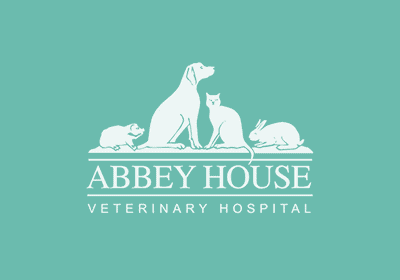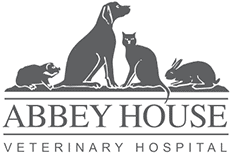Latest News from Abbey House Veterinary Hospital

- Details
We all want to include our pets during the Christmas festivities and treating them to something special isn’t uncommon. Read below for guidance on safe, pet-friendly foods you can give your pet this Christmas.

- Details
The question of whether to put a bell on your cat's collar sparks a lot of discussion among cat owners, and for good reason! There's no single right answer; what's best depends on your cat's unique personality, lifestyle, and your home environment.

- Details
Read our important update regarding Saturday open times

- Details
Travelling with your dog can be an exciting adventure, but it requires some planning to ensure a smooth journey for both you and your dog. Whether you're embarking on a road trip, flying to a new destination, or simply heading to Abbey House Vets for a check-up, preparing your dog adequately is key to a stress-free experience. Here, we share some top tips to make sure your dog is travel-ready and comfortable throughout your journey.

- Details
Treats and Hidden Threats: Protecting Your Dog from Xylitol Poisoning
We love sharing the good times with our dogs, and sometimes that means indulging them in a special treat from time-to-time.
However, together with the fun, it's crucial to be aware of hidden dangers that can be in seemingly harmless snacks. One of those dangers is xylitol, a sugar alcohol commonly used as a sweetener in many everyday products, which is perfectly safe for humans, but extremely toxic to dogs, even in small amounts.
This blog post aims to provide you with the knowledge to keep your dog safe from xylitol poisoning. We'll delve into what xylitol is, why it's dangerous for dogs, the signs and symptoms of poisoning, and the crucial steps to take if you suspect your dog has ingested xylitol.

- Details
Understanding the impact of stress on your pet’s health
We all know stress can take a toll on our health, but did you know it can also significantly impact your pet’s wellbeing? Just like us, pets experience stress and anxiety in response to various situations. Chronic stress, however, can have a detrimental effect on your pet’s physical and mental health.

- Details
The silver years: Special considerations for senior pet wellness
Our pets bring us countless moments of joy and unconditional love throughout their lives. As they enter their senior years, however, their needs can change. They may become less energetic, require adjustments to their diet and environment, and be more susceptible to certain health concerns.
Understanding these changes and making adjustments to their care routine is essential for ensuring their continued happiness and wellbeing in their golden years. Senior pet insurance can also play a valuable role in providing financial security for their potential future veterinary needs.

- Details
Summer is a time for fun in the sun, and many of us enjoy spending time outdoors with our pets, however, on the surface of ponds and lakes can be a hidden danger: blue-green algae. While not all algae are harmful, blue-green algae (also known as cyanobacteria) can produce extremely dangerous toxins and be fatal to dogs.
At Abbey House Vets in Leeds, we want to ensure you and your dog have a safe and enjoyable time outdoors, so, here’s what you need to know about blue-green algae and how to keep your dog safe.

- Details
Summer is a time for fun in the sun, but it's important to remember that the warm weather can be just as uncomfortable for our pets. As dog owners, it's our responsibility to ensure they stay safe and stay cool in the warm weather.
Don't let the heat slow you down! With a few essential tips and tricks from Abbey House Vets, you can make summer walks enjoyable experiences for you both.

- Details
Keeping your pet's claws trimmed is an essential part of their overall health and wellbeing. Long nails can cause discomfort, make walking difficult and even lead to accidental injuries to both you and your pet.
While clipping your pet's claws might seem daunting at first, with a little practice and the right approach, it can become a quick and stress-free experience for both of you. Here at Abbey House Vets, we're dedicated to helping you provide the best care for your pet, therefore, this guide offers some helpful tips and tricks for clipping your pet's claws safely and effectively.





